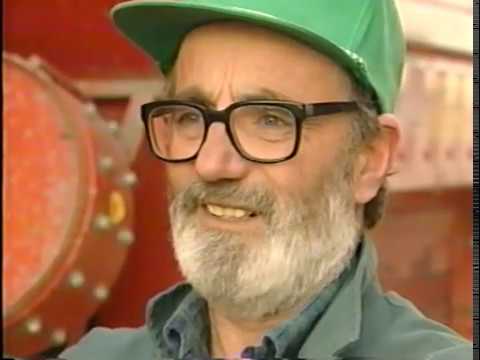The face of farming has changed in the last two and a half decades. Many small and mid-sized family farms are gone, absorbed into factory farming style enterprises. Only a few smaller grain elevators, once backbone delivery points for marketing grain, are standing under private ownership or in disrepair.
While some pressures like shifting commodity prices and rising input costs will always be there, in the year 2000, those pressures were crushing some small family operations. That’s the reason that Nick Parson’s embarked on a monumental journey, driving his Massey Ferguson combine from Dawson Creek, BC to Parliament Hill in Ottawa. Parsons was on a mission to unveil the plight of the family farm to politicians and the Liberal government leadership, then under Prime Minister Jean Chretien.
Dubbed “Prairie Belle,” Parsons’ combine headed to Victoria for a rendezvous with provincial leadership that offered little relief. So, he headed south and west, crisscrossing the prairies on an epic journey to the nation's capital.
Now, Parsons and his combined will be reunited at Vintage Day in Wadena, on Sunday, July 27, as part of the community’s celebration of prairie heritage.
He’s looking forward to returning to the prairies and to Wadena for an informal reunion. He recalls having little cash to make the cross-country trip, and he recalls the generosity of prairie farmers on his odyssey in keeping the gas tank full and giving him the wherewithal to complete the journey.
“Saskatchewan and Alberta farmers, mainly Saskatchewan farmers, donated to me on the highway,” Parson recollects in an interview. “By the time I got to Weyburn, I had $7.000 and this increase to around $10 by the time I left Manitoba.”
That’s a big part of the reason that Parsons made the decision to gift Prairie Belle to the people he felt had truly owned the journey: the Saskatchewan farmers. The combine was passed to a Foodgrains Bank project in Quill Lake, where she worked the fields for another four years before being permanently retired to the Wadena and District Museum.
Wadena became Prairie Belle’s final stop, thanks in part to Tom Morton, a local Massey Ferguson dealer who had admired Parsons’ efforts. “Tom said, ‘If you ever retire her, bring her here,’ and that’s what I did,” Parsons said.
For several years, the combine remained a working symbol of community resilience, helping with harvests and raising awareness for food security. However, as modern equipment grew too large and fast for the aging combine to keep pace, Prairie Belle was officially retired and preserved in the museum.
It’s been 25 years since that monumental trek where Parsons stood on Parliament Hill to speak to leaders including Preston Manning and Roy Romanow, and was ushered to 24 Sussex Drive for an after-hours audience with Prime Minister Chretien.
“I just hope she’s not too rusty,” Parsons said. “They tell me she’s in an air-conditioned building, but I haven’t seen her since a parade during Wadena’s centennial celebration around 2011 or 2012.”
Looking back on the trials of his turn of the millennium journey, Parsons remains modest and philosophical, but he has a sense of his actions’ impact. He recalls the words of PEI MP and one-time federal Agriculture Minister Wayne Easter.
“He said to me, ‘Nick, nobody will ever tell you, but I’m going to tell you: You did good.’ That was good enough for me,” Parsons recalled with emotion.
His original journey took 49 days, 19 longer than planned, due to the countless people who stopped to chat, donate, or just say thanks.
“You’d be surprised how many tears I saw from farmers in despair,” he said. “They just wanted to feel heard.”
Parsons reflected on the dramatic transformation of farming over the past few decades. “When I started, a big farm was maybe 1,000 or 2,000 acres. Now it’s 20,000, 30,000. The machinery is massive. It’s a different era.”
The combine may no longer run like she used to, but Parsons hopes to take Prairie Belle out for “a couple of miles” during the upcoming gathering in Wadena this weekend, weather permitting.
“It would be nice to bring her out on the highway again,” he said.
The video that follows is a CBC produced documentary short that aired on the network’s long running series “Country Canada.” The video is posted on YouTube.
